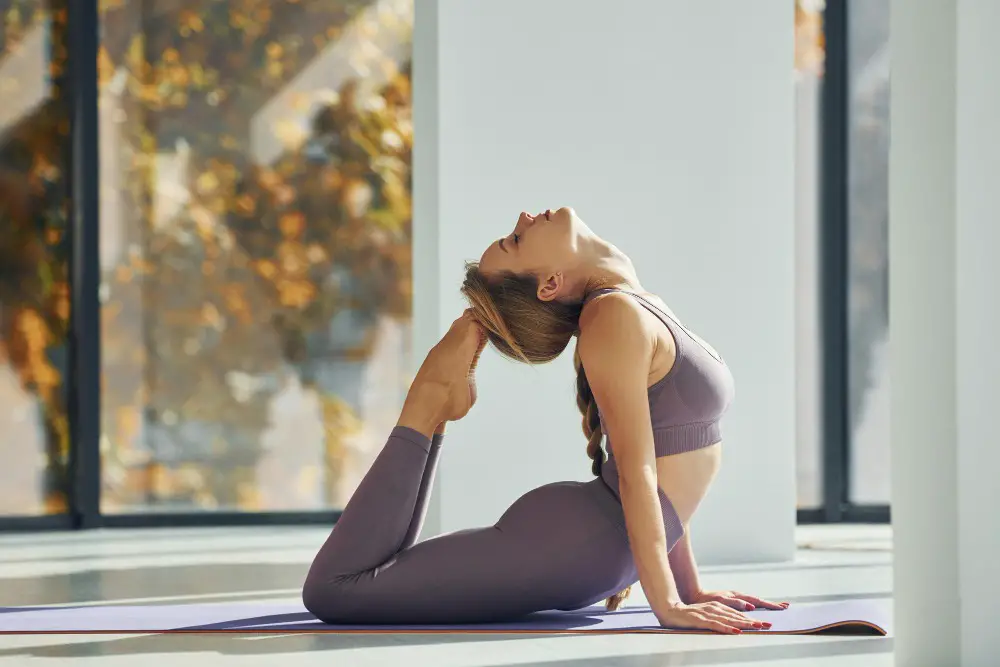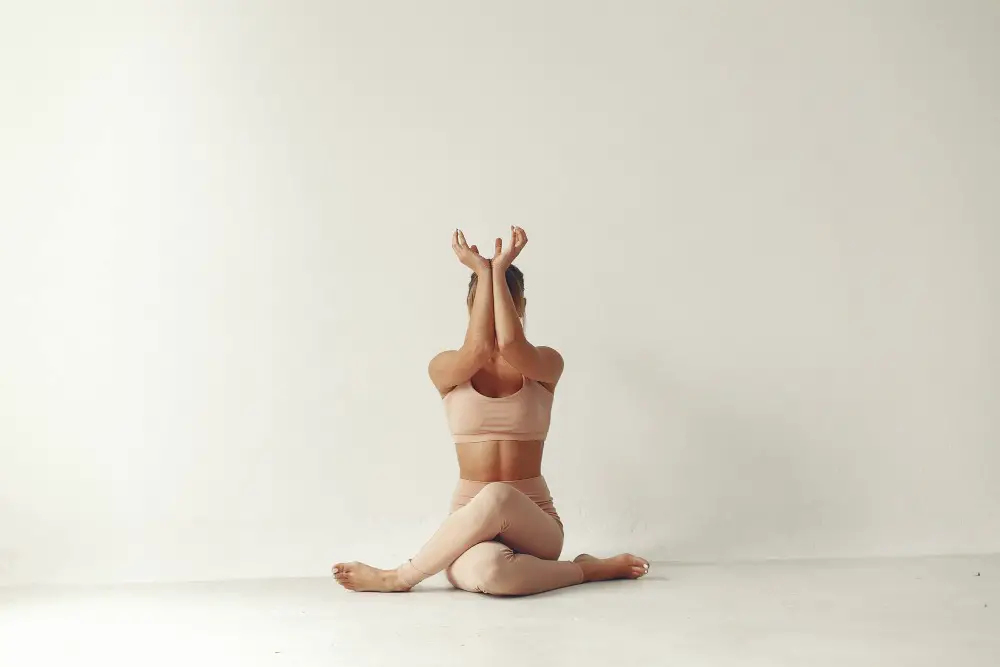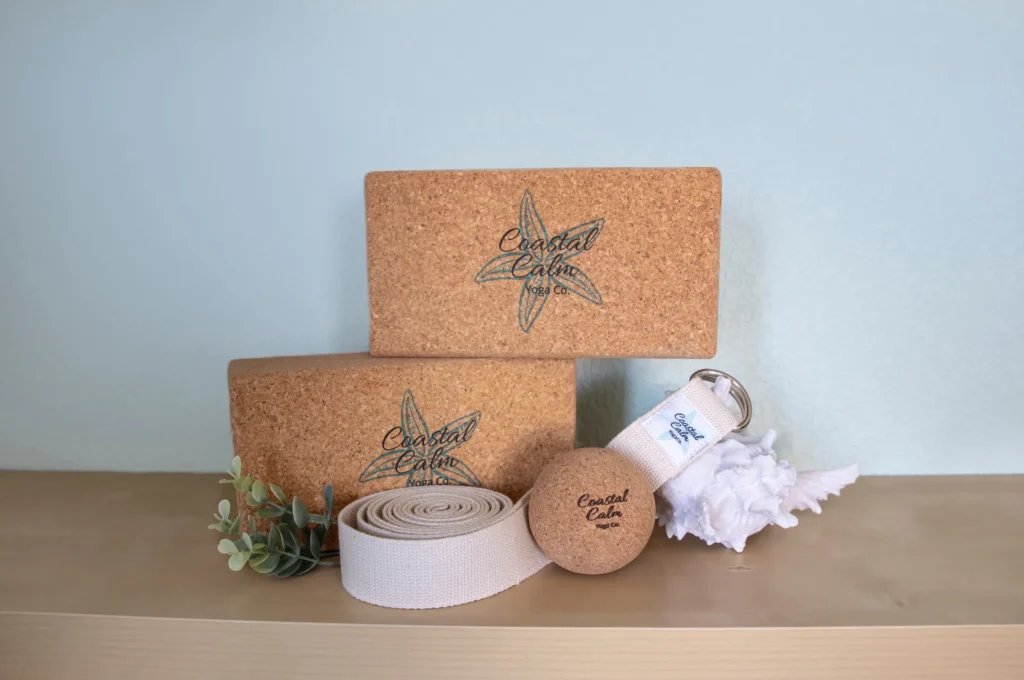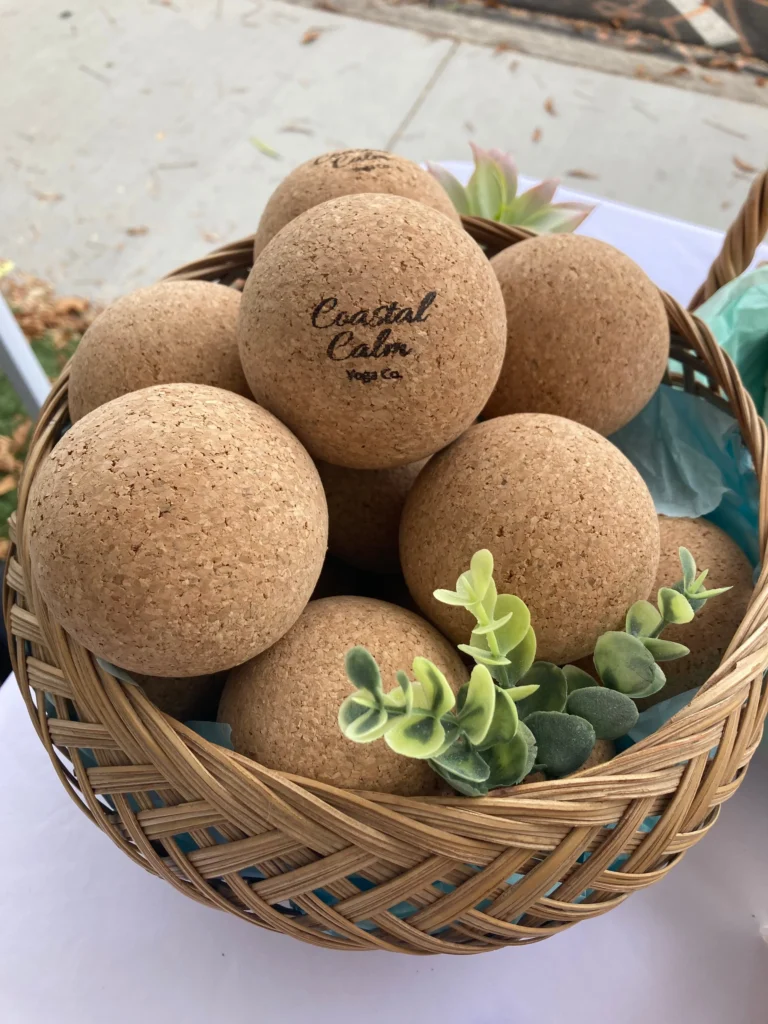Around 5,000 years ago, a practice began in the mountains of Northern India. The word yoga appears for the first time here in one of the world’s oldest religious manuscripts – the Rig Veda. This text contains songs, mantras, and rituals used by Vedic priests or Brahmans that are still used today.
Yoga is steeped in history and has proven benefits for those practicing it. If you’ve ever considered trying yoga, read on to learn about this ancient practice, what it can do for you, and some products to make it easier to get started.

Around 500 B.C.E., a volume of scriptures called the Bhagavad Gita was composed. This script emphasized self-knowledge (karma yoga) and wisdom (jnana yoga) as the main paths to spiritual growth.
The first emergence of systematic yoga practices developed in the second century C.E. These are the Patanjali’s Yoga-Sutras, and this period is often referred to as the beginning of the Classical Yoga Period.
These sutras or teachings organized yoga into an “eight-limbed path” to guide practitioners towards Samadhi (enlightenment). This important work continues to guide modern yoga styles today. This is often considered the beginning of classical yoga.
In the late 1800s to early 1900s, yoga masters began traveling to Western civilizations. They soon attracted followers, and interest has done nothing but grow since. Most of the yoga practiced in the United States is a version of Hatha Yoga, which focuses on cleansing the body and the mind to eliminate physical limitations. Hence, you see yoga masters performing amazing or even supernatural-looking asanas (poses).
Yoga has spanned thousands of years, yet its core principles of improving your life have never changed. Its practice continues to multiply in the United States, and for good reason. This ancient practice has many scientifically proven benefits.
The benefits of yoga
Indeed, yoga has grown swiftly in the U.S. From 2010 to 2021, there was a 63.8% increase in those practicing yoga. As of 2021, 34.4 million people were practicing yoga in the U.S. alone.
That’s quite a jump. One reason, as stated above, is that yoga has numerous benefits. With its popularity, these benefits have even been scientifically proven. Here are some of the main benefits you can look forward to:
Improved flexibility
If you’ve seen some poses performed, you know it takes flexibility. Even if you don’t start out being flexible, your flexibility will significantly improve through yoga. This can even be accomplished through low-intensity yoga – ideal for older adults.
Stress relief
The physical postures (asana) alone can alleviate stress. Throw in the meditation, breath work, and auditory rituals, and you will be chill and calm in no time.

Enhanced mental health
Stress relief alone is helpful for your mental health. However, yoga has been proven to be an effective alternative treatment for major depressive disorder (MDD). It’s been shown in multiple studies that movement-based yoga therapies and breathing practices significantly improve depressive symptoms.
Reduced inflammation
Yoga has been shown to contribute to reduced inflammation, which is a significant contributor to many health problems.
Heart health
With improved stress levels, blood pressure, and overall well-being, your heart can’t help but be healthier.
Quality sleep
Everyone knows the value of a good night’s rest. Yoga has been shown to promote better sleep patterns and improve sleep quality. As you practice the mindfulness techniques in yoga, you can relax easier, which will help you fall asleep faster.
Weight management
Yoga increases self-awareness and encourages mindful eating, which can help you meet your weight loss goals.
Improved brain function
Yoga stimulates brain function, which enhances your cognitive abilities and mental clarity. Who couldn’t use a little more clarity?
Chronic condition management
The overall well-being, mindfulness, and stress management techniques learned and practiced in yoga help manage chronic conditions.
As you can see, yoga is popular for good reason. It’s been around for thousands of years, for good reason. So, the question is, what is your good reason to get started? Or, what is keeping you from getting started? Here are a few tips to help you glide into yoga with minimal effort. Once you start, you might discover a new activity that will last the rest of your life.
Getting started in yoga
These tips are not all-encompassing; however, if you follow them, starting in yoga will be more enjoyable and far less intimidating.
- Find a quality teacher
An experienced teacher can guide you effectively, answer all your questions, and ensure proper posture during poses. Try to find someone who is knowledgeable and compassionate.
- Learn some poses ahead of time
This will get you familiar with some of the basics. Learning beginner poses such as Mountain, Child, Warrior 1, and Sun Salutations will boost your confidence and readiness for class.
- Wear comfortable clothing
This should go without saying; however, it needs to be said. Wear clothing that allows a full range of breathable and moisture-wicking movement.
- Consider using blocks and straps
Blocks are just that: blocks made of foam, rubber, or cork that “bring the floor to you.” Basically, raising the level of the floor makes many poses easier, especially for those just starting out or if you have limited mobility.
Using blocks can also aid in:
- Building upper body strength
- Helping you practice correct alignment
- Protect and strengthen weak wrists
Straps assist you in stretching by extending your reach, which is handy in shoulder and hamstring stretches. They also improve your alignment in certain poses where, say, reaching your feet might be difficult. Gradually, over time, using straps will help increase your flexibility. Eventually, you may not use them at all.
There are a few tips for getting started in yoga. It’s an activity worthy of your attention and consideration. The benefits are many and other than taking a bit of your time; there are no downsides.
If you are considering the practice of yoga as a new activity, think about the tips above for getting started. Watch some videos, learn a few basic poses, and consider blocks or straps to help get you going.
Coastal Calm Yoga is a company that provides yoga equipment for beginners and advanced yoga practitioners. Their blocks are made of renewable cork and exquisite quality. If you are looking to start, then consider the
The Daily Core
This starter set comes with everything you need to get posing.

Everything to get started in one accessory pack – Two natural cork blocks, an eight-foot organic cotton strap, and an all-natural cork therapy ball for relieving your sore muscles.
If you’ve been practicing yoga for a while and need something to help with sore muscles, consider the all-natural
Therapy Ball
A 100% cork ball is perfect for alleviating sore muscles.
At three inches in diameter, it’s the perfect take-anywhere size. To use the ball, roll it over your sore muscles or place it between the muscle and a stable surface like a table or wall. Then, roll out the tension stored in that muscle. It’s also convenient to relieve sore feet; roll along your arches, and you’ll quickly understand.
Coastal Calm Yoga was created by combining the owners’ love of yoga and the beach. They are proud to use 100% renewable materials in their products and are happy to be a Certified Green Innovator by the California Green Business Network.
If you want to change your life through yoga, consider easing your start with these fine products from people who know yoga – Coastal Calm Yoga.
* In partnership with our friends at Coastal Calm Yoga Co.* Photo courtesy of Coastal Calm Yoga Co.
* These statements have not been evaluated by the Food and Drug Administration. These products are not intended to diagnose, treat, cure or prevent any disease.
* The information available on ewellnessmag.com, including text, graphics, and other materials is for informational purposes only. Reliance on any information in ewellnessmag.com is at the user’s own risk. Sponsored product placement may appear in the article. The visitor of this website acknowledges that the information available on or through ewellnessmag.com is not and is not intended to be a substitute for professional medical advice. Copyright © 2024 Brawo Press, Inc. All rights reserve





